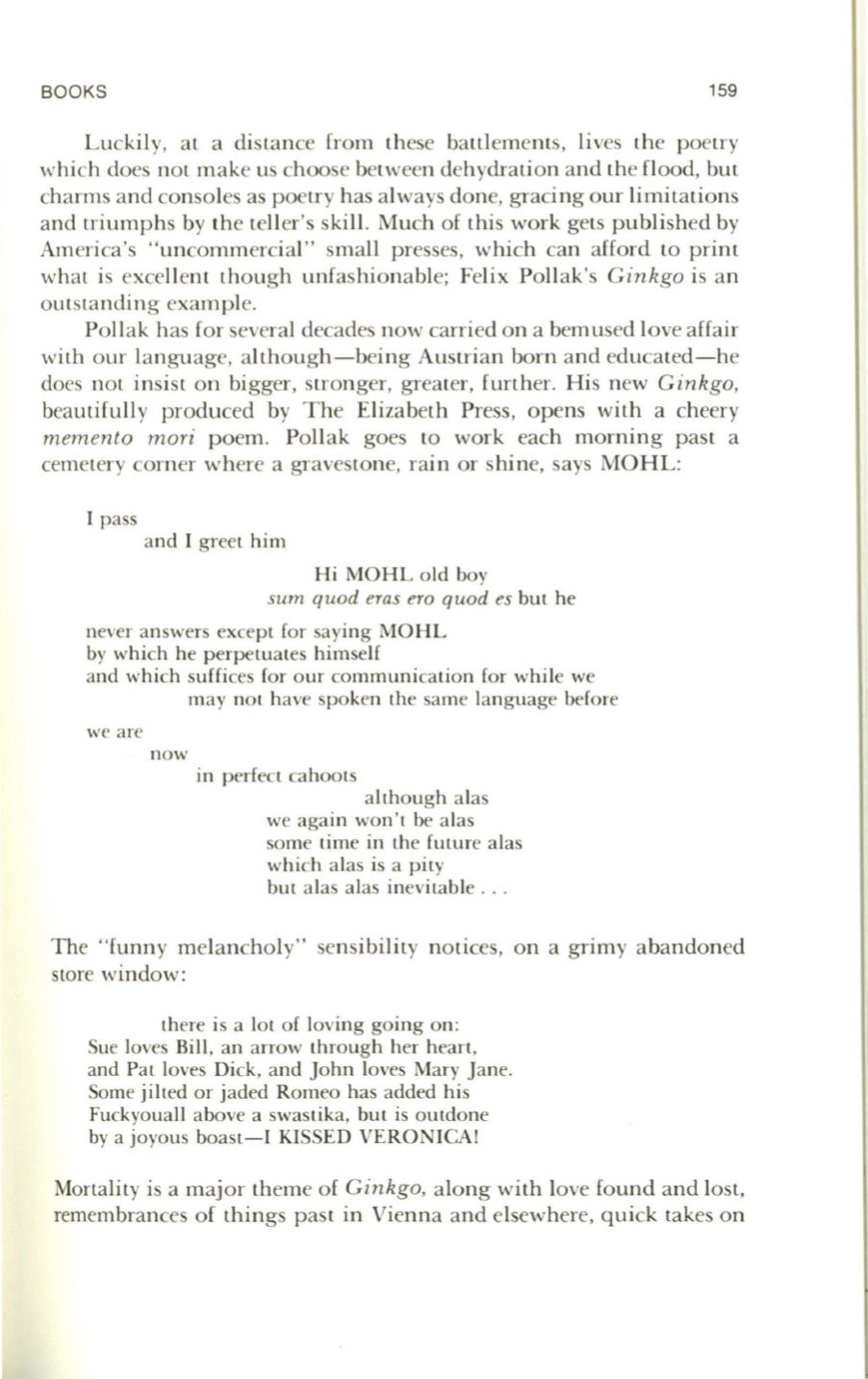
BOOKS
159
Luckily, at a distance from these batllements, lives the poetry
which does not make us choose between dehydration and the flood, but
charms and consoles as poetry has always done, gracing our limitations
and triumphs by the teller's skill. Much of this work gets published by
America's "uncommercial" small presses, which can afford to print
what is excellent though unfashionable; Felix Pollak's
Ginkgo
is an
outstanding example.
Pollak has for several decades now carried on a bemused love affair
with our language, although-being Austrian born and educated-he
does not insist on bigger, stronger, greater, further. His new
Ginkgo,
beautifully produced by The Elizabeth Press, opens with a cheery
memento mOTi
poem. Pollak goes to work each morning past a
cemetery corner where a gravestone, rain or shine, says MOHL:
I pass
and I greet him
Hi MOHL old boy
sum quod eras era quod es
but he
never answers except for saying MOHL
by which he perpetuates himself
and which suffices for our communication for while we
may not have spoken the same language before
we are
now
in perfect cahoots
although alas
we again won 't be alas
some time in the future alas
which alas is a pity
but alas alas inevitable . ..
The "funny melancholy" sensibility notices, on a grimy abandoned
store window:
there is a lot of loving going on:
Sue loves Bill , an arrow through her hearl,
and Pat loves Dick, and John loves Mary Jane.
Some jilted or jaded Romeo has added his
Fuckyouall above a swastika, but is outdone
by a joyous boast-I KISSED VERONICAI
Mortality is a major theme of
Ginkgo,
along with love found and lost,
remembrances of things past in Vienna and elsewhere, quick takes on


